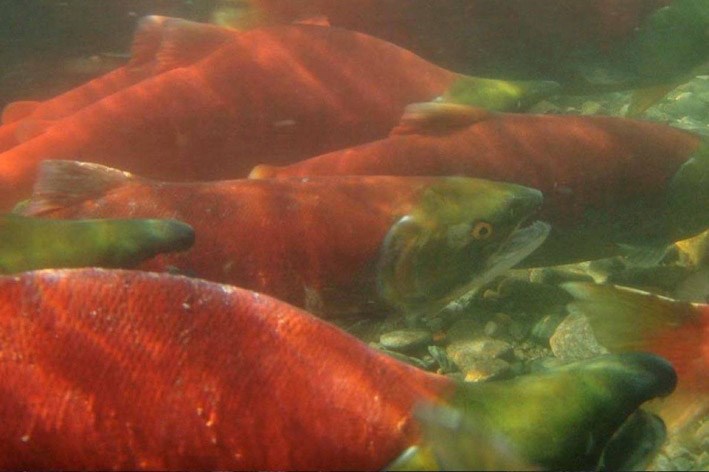Tsilhqot’in leaders say they have no choice but to close all salmon fishing within their territory west of Williams Lake due to “extreme conservation concern” over the state of sockeye and chinook runs.
The Tsilhqot’in Council of Chiefs representing the communities of ?Esdilagh (Alexandria), Tsi Del Del (Redstone), Yunesit’in (Stone), Tl’etinqox (Anaham), Xeni Gwet’in (Nemiah Valley) and Tl’esqox (Toosey) declared the closure for members, who rely on salmon as a main food source, as of Friday, Aug. 14.
“It is a very difficult decision,” leaders noted in a statement to members. “We know the incredible hardship this means for our families and communities — not only the loss of food for our freezers this winter but also foregoing our rights to practice our culture and teach our young ones what it means to be Tsilhqot’in — the River People.”
Sockeye and chinook returning this season in Tsilhqot’in watersheds including the Fraser River are at the lowest numbers ever recorded.
“We need to protect the salmon for future generations,” said ?Esdilagh Chief Roy Stump Tuesday of the closure.
Tsilhqot’in National Government fisheries manager Randy Billyboy said the number of sockeye salmon making a return to their rivers including the Chilcotin, Chilko, and Taseko and tributaries has been downgraded to 52,000.
A sonar population assessment on Aug. 12 at the Farwell Bridge counted just 16 sockeye.
In terms of Chinook, fewer than 10 were spotted in the spawning grounds of the upper Chilcotin River by a flight conducted on Aug. 17.
“It is alarming,” Billyboy said, adding the upper Chilcotin River normally averages anywhere from 75 to 300 Chinook with between 1,500 to 3,000 in the lower Chilcotin River.
“The numbers have been decreasing quite a bit.”
In a weekly report posted Aug. 14, the Pacific Salmon Commission estimates only 283,000 Fraser River sockeye salmon will return which would be the lowest run size on record, making the last three out of five years record breaking low returns.
“This year was supposed to be a bad year and it turned out to be a bad year, and it didn’t really help out with the high waters as well,” Billyboy said.
BC Assembly of First Nations Regional Chief Terry Teegee accused the federal government of not taking the situation seriously.
The First Nations Leadership Council is calling on Canada’s Minister of Fisheries and Oceans to issue an emergency order to close all sockeye fisheries on the Fraser River.
In their statement to members, TNG leadership said they are hoping others will follow their lead upriver, downriver and in the ocean to protect salmon runs.
“If one person or group thinks they deserve more than the other then we are destined to loss everything.”
They noted their fisheries team is working on emergency recovery measures for chinook and sockeye and actively fighting to protect and recover salmon runs.



